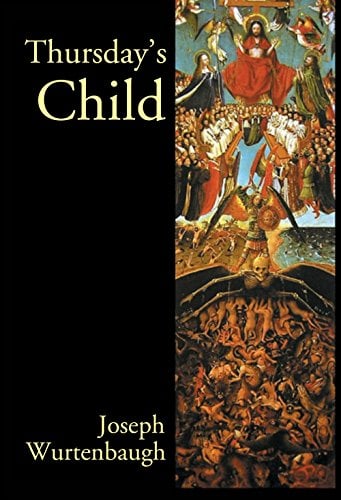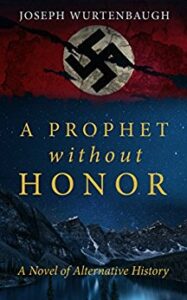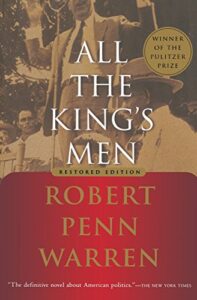
Following find an interview with author Joseph Wurtenbaugh.
What is the name of the book and when was it published?
Thursday’s Child was written between 1989 and 1991. It was a represented book, and editorially accepted at Warner Communications, then declined for marketing reasons. I kept it on the shelf for years, and finally revised it in 2008 when e-book publication became feasible. But I didn’t particularly publicize it. After some success with Kindle Selects and another novel (A Prophet Without Honor), I picked it up again, took it back to its original 1989 time frame, and published what will be the final version in February of 2018.
What’s the book’s first line?
It was the morning of the autumnal equinox, 9:25 a.m. on a spring-like Tuesday in September in mid-town Manhattan.
What’s the book about? Give us the “pitch”.
The Thursday’s Child of the title, Adele Jansen, has (in the words of the old rhyme about birthdays) far to go. Gifted, ambitious, and determined, she takes one step off the career track for an impromptu excursion with a man as fascinating as he is mysterious. But that one small step draws her gradually into an odyssey. The book is a romance, but also an epic. A real sense of adventure permeates the story, as Adele meets one challenge after another. She’s a small, inoffensive looking young woman, ‘the frontrunner for the most-likely-to-be-disregarded prize’, in the words of one character. But the reality is that she is a fully armored warrior. Watching her pull out her weapons one after another is the fun of the novel – that, and all the conventional pleasures of less ambitious romances. After all, this IS a love story.
What inspired you to write the book? A particular person? An event?
Truthfully? I began the book simply as a personal experiment, to see if I could produce a conventional contemporary romance for Harlequin. But almost at once I began to enrich it. Finally, it took on the dimensions it has now. It is far more a work of serious literary fiction than a romance.
What’s the main reason someone should really read this book?
It’s fun! It’s a great story, with interesting, lively characters, atmospheric and sexy – this is definitely not one of those ‘one chaste kiss’ romances. Adele Jansen is one of the most lively and fully rounded heroines you will ever encounter. (She’s strong in the way that strong women actually are strong, which has little to do with skill at martial arts.)
Above all, the narrative creates its own universe – you can lose yourself in it for a while. It’s a fully immersive reading experience, which is always what I seek as a reader.
What’s the most distinctive thing about the main character? Who-real or fictional-would you say the character reminds you of?
I’m going to quote from the book, the two lines that lead off the blurb: “She’s cute as a button and sweet as apple pie, but don’t let her fool you. She’s a stone cold killer zombie from outer space.”
That is the book in a nutshell. Like all bright, feminne heroines, Adele’s a direct descendant of Elizabeth Bennet (“Pride and Prejudice”). But she has a much more varied background, and the challenges of the 21st Century are far more complex than the 18th.
When did you first decide to become an author?
I’m going to answer that in an odd way. I don’t really think of myself as an ‘author’, as if writing a novel made any real difference to whom I am. I enjoyed writing the book, and I throw myself into it. Exercising the craft involved is a real pleasure, and I know I have some skill at it. But putting myself in a different category or characterizing myself in some unique way because I did it? No.
Is this the first book you’ve written?
It was, but there have been few since.
What do you do for work when you’re not writing?
I practiced law for forty years in a variety of fields. This background shows up in the novel, which is set in a legal milieu.
What’s the best and the hardest part of being an indie?
The best? Avoiding the gatekeepers. This book was actually represented and accepted at Warner’s Communications at one time. Then the sales and marketing people declined, for reasons that were sensible, but ultimately invalid, in my opinion. Doing it myself avoids that.
The big negative is related to the positive. Obviously, when you are outside the conventional pipeline, you do not have the advantages of publicity, recognition, and so on, that mainstream publishers provide their writers. Getting recognized on the big stage is problematic.
What’s a great piece of advice that you can share with fellow indie authors?
Remember that a great many solid pieces of writing do not result in great fame or wealth. Value your achievement and be happy with what success does come your way.
Would you go traditional if a publisher came calling? If so, why?
Of course. Why not?
Which writer, living or dead, do you most admire?
I like books with a strong narrative push. So C.S Forester (the creator of Horatio Hornblower). Also – without blushing – J.K. Rowling. The Potter books are sensationally well-constructed. Her other stuff, not so much.
Which book do you wish you could have written?
Robert Penn Warren’s book, All the King’s Men.


